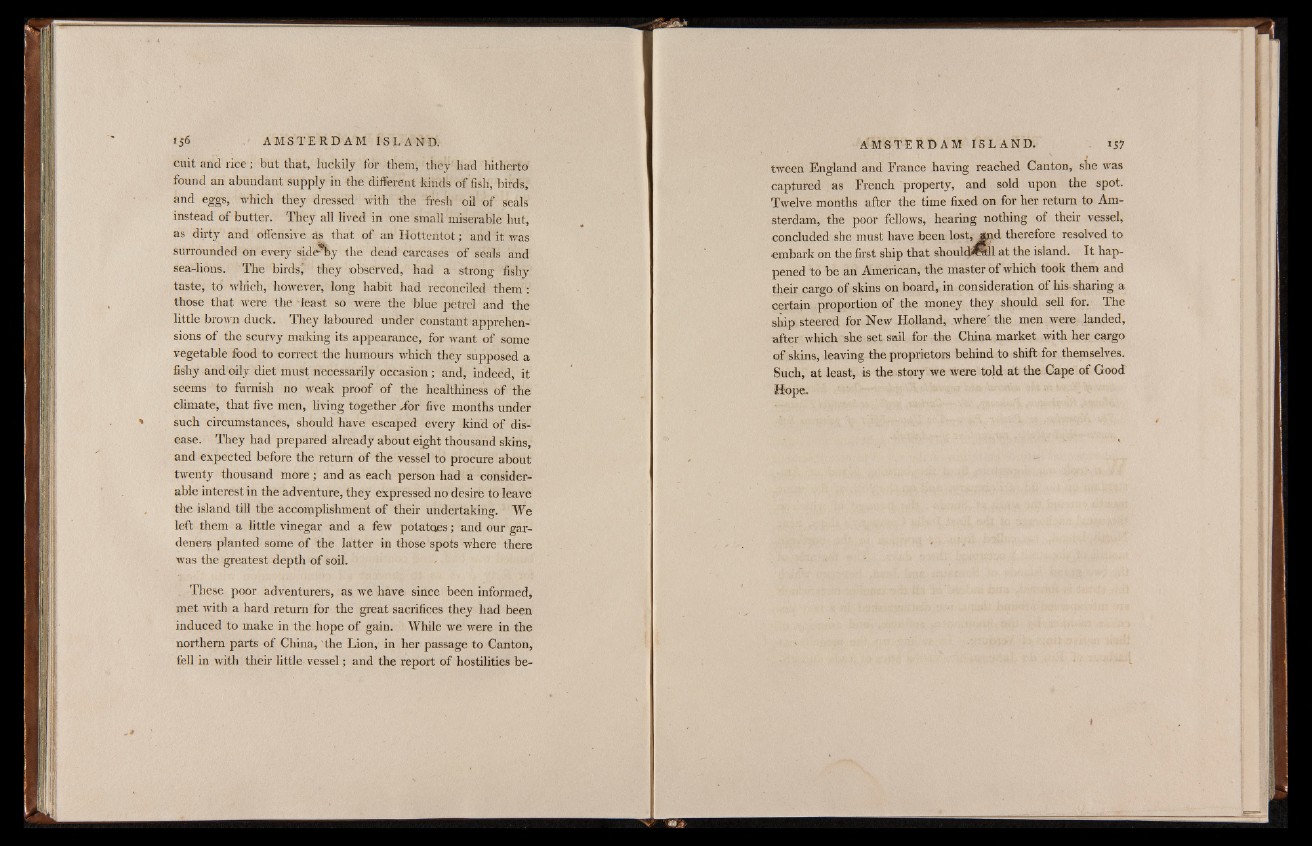
156 A M S T E R D A M I S L A N D .
cuit and rice j but that, luckily for them, they had hitherto
found an abundant supply in the different kinds of fish, birds,
and eggs, which they dressed with the fresh oil of seals
instead of butter. They all lived in one small miserable hut,
as dirty and offensive as that of an Hottentot; and it was
surrounded on every sider%y the dead carcases of seals and
sea-lions. The birds' they observed, had a strong fishy
taste, to which, however, long habit had reconciled them :
those that were the least so were the blue petrel and the
little brown duck. They laboured under constant apprehensions
of the scurvy making its appearance, for want of some
vegetable food to correct the humours which they supposed a
fishy and oily diet must necessarily occasion; and, indeed, it
seems to furnish no weak proof of the healthiness of the
climate, that five men, living together Aor five months under
such circumstances, should have escaped every kind of disease.
They had prepared already about eight thousand skins,
and expected before the return of the vessel to procure about
twenty thousand more; and as each person had a considerable
interest in the adventure, they expressed no desire to leave
the island till the accomplishment of their undertaking. We
left them a little vinegar and a few potatoes; and our gardeners
planted some of the latter in those spots where there
was the greatest depth of soil.
These poor adventurers, as we have since been informed,
met with a hard return for the great sacrifices they had been
induced to make in the hope of gain. While we were in the
northern parts of China, The Lion, in her passage to Canton,
fell in with their little vessel; and the report of hostilities between
England and France having reached Canton, she was
captured as French property, and sold upon the spot.
Twelve months after the time fixed on for her return to Amsterdam,
the poor fellows, hearing nothing of their vessel,
concluded she must have been lost, and therefore resolved to
embark on the first ship that sh o u ld ^ ll at the island. I t happened
to be an American, the master of which took them and
their cargo of skins on board, in consideration of Ids sharing a
certain proportion of the money they should sell for. The
ship steered for New Holland, where' the men were landed,
after which she set sail for the China market with her cargo
of skins, leaving the proprietors behind to shift for themselves.
Such, at least, is the story we were told at the Cape of Good
Hope.